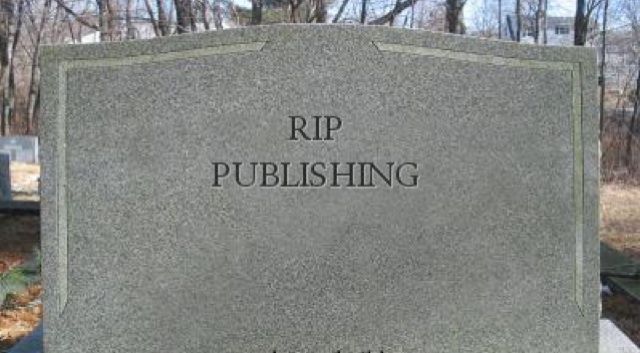
New media intellectual, author and professor Clay Shirky is not optimistic about publishing, at least as an industry. For Shirky, publishing is no longer a job or an industry, it is a “button.” As Shirky points out in this interview with Findings, publishing doesn’t take a special class of specially trained people, it just takes WordPress. Now publishers are left struggling to manufacture demand for their products (see his thoughts on the Kindle).
The question isn’t what happens to publishing — the entire category has been evacuated. The question is, what are the parent professions needed around writing? Publishing isn’t one of them. Editing, we need, desperately. Fact-checking, we need. For some kinds of long-form texts, we need designers. Will we have a movie-studio kind of setup, where you have one class of cinematographers over here and another class of art directors over there, and you hire them and put them together for different projects, or is all of that stuff going to be bundled under one roof? We don’t know yet. But the publishing apparatus is gone. Even if people want a physical artifact — pipe the PDF to a printing machine. We’ve already seen it happen with newspapers and the printer. It is now, or soon, when more people will print the New York Times holding down the “print” button than buy a physical copy. The original promise of the e-book was not a promise to the reader, it was a promise to the publisher: “We will design something that appears on a screen, but it will be as inconvenient as if it were a physical object.” This is the promise of the portable document format, where data goes to die, as well.
See the full interview here.
More in Media

In Graphic Detail: The scale of the challenge facing publishers, politicians eager to damage Google’s adland dominance
Last year was a blowout ad revenue year for Google, despite challenges from several quarters.

Why Walmart is basically a tech company now
The retail giant joined the Nasdaq exchange, also home to technology companies like Amazon, in December.

The Athletic invests in live blogs, video to insulate sports coverage from AI scraping
As the Super Bowl and Winter Olympics collide, The Athletic is leaning into live blogs and video to keeps fans locked in, and AI bots at bay.





